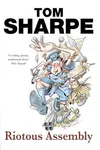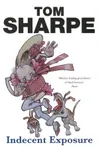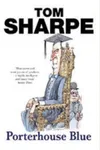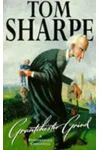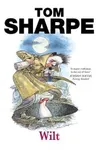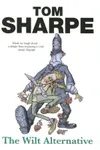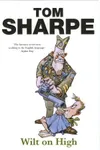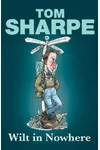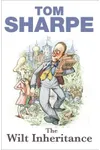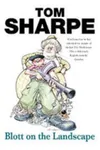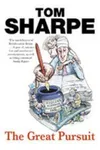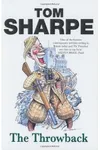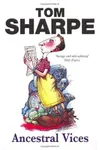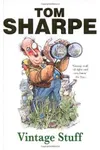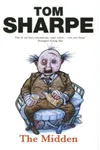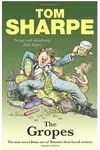Picture a British storyteller who turned the absurdities of life into riotous satire—meet Tom Sharpe! Born in 1928, Sharpe was a master of farce, crafting novels like the Wilt series and Blott on the Landscape that left readers laughing and thinking. His sharp wit and fearless social commentary made him a beloved figure in British comedy, poking fun at everything from apartheid to academia.
Sharpe’s life was as colorful as his stories. From his turbulent youth to his deportation from South Africa, his experiences shaped a unique voice that blended humor with biting critique. Let’s dive into the world of this satirical genius!
The Making of Tom Sharpe
Thomas Ridley Sharpe was born on March 30, 1928, in Holloway, London, and raised in Croydon. His father, a Unitarian minister with far-right views, initially influenced young Tom, but the horrors of Bergen-Belsen’s liberation shifted his perspective. Educated at Bloxham School and Lancing College, Sharpe served in the Royal Marines before studying history and social anthropology at Pembroke College, Cambridge. In 1951, he moved to South Africa, working as a social worker and teacher. His outspoken criticism of apartheid, including a play titled The South Africans, led to his arrest and deportation in 1961.
Back in England, Sharpe lectured in history at the Cambridge College of Arts and Technology from 1963 to 1972. These years, filled with academic quirks and bureaucratic absurdities, inspired his most famous works. At 43, he published his debut novel, Riotous Assembly, launching a career that would redefine British satire.
Tom Sharpe’s Unforgettable Stories
Sharpe’s novels are a wild ride of farce, dark humor, and social critique. His Wilt series, starting with Wilt in 1976, follows Henry Wilt, a hapless lecturer navigating a chaotic world of domineering wives and inept police. The series, including The Wilt Alternative and Wilt on High, showcases Sharpe’s knack for turning mundane life into hilarious mayhem.
Blott on the Landscape (1975) is another gem, a standalone tale of Lady Maud and her gardener Blott thwarting a motorway project with absurd antics, like lions in a rose garden. Sharpe’s South African novels, Riotous Assembly (1971) and Indecent Exposure (1973), mock the apartheid regime with savage wit, drawing from his own encounters with its brutality. Porterhouse Blue (1974) skewers Cambridge’s academic elite, blending slapstick with sharp commentary on tradition versus progress.
Sharpe’s style is unapologetically crude, often diving into smut and grotesquerie, yet his dialogue sparkles with restraint and wit. Influenced by Evelyn Waugh and P.G. Wodehouse, he crafted exaggerated characters and improbable plots that both amused and provoked. His ability to lampoon societal flaws—class snobbery, political extremism, and bureaucracy—made his work timeless.
Why Tom Sharpe Matters
Tom Sharpe’s legacy lies in his fearless satire and infectious humor. His novels, adapted into TV series like Porterhouse Blue (1987) and Blott on the Landscape (1985), brought his irreverent voice to wider audiences. In South Africa, his early works were banned, a testament to their impact. Sharpe’s ability to blend farce with social commentary inspired readers to question authority and laugh at life’s absurdities.
Despite his passing in 2013, Sharpe’s books remain a vibrant critique of human folly. His unique perspective, shaped by personal struggles and global injustices, continues to resonate, making him a standout in British literature.
About Tom Sharpe
- Born: March 30, 1928, Holloway, London
- Died: June 6, 2013, Llafranc, Spain
- Key Works: Wilt series, Blott on the Landscape, Porterhouse Blue, Riotous Assembly
- Awards: 1986 Grand Prix de l’Humour Noir, 2010 BBK La Risa de Bilbao Prize
Ready for a laugh? Snag Wilt or Blott on the Landscape and dive into Tom Sharpe’s outrageous world of satire!
